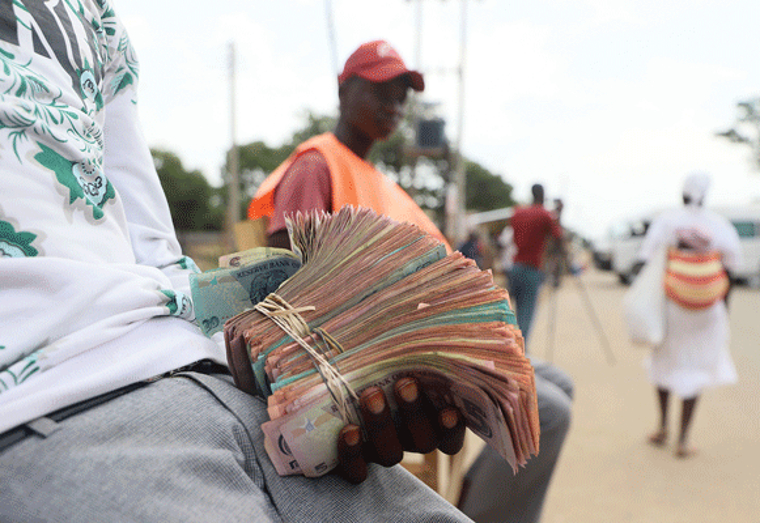Fourthly, we have to have a completely free market for all hard currency needs. Any Zimbabwean who needs currency should be able to buy what they want at their banks and Bureau du Changes, at the market price of the day. All hard currency inflows, except personal transactions such as remittances, must be converted by the Banks into the new local currency at a real market price, based on supply and demand.
Fifthly, we need to demonetise all foreign currencies for local transactions. That means that foreign currencies will no longer be acceptable in local markets, taxi fares, hotels, service payments, taxes and all other local payments people have to make must be conducted in local currency. That means that retailers and all others are going to have to have confidence in our currency and that means discipline in the monetary system. It also means that our local currency must be convertible into hard currency on demand.
That’s a tough list of basic decisions that need to be made to support the basic decision to re-introduce our own currency. All far reaching and game changing in themselves. What remains?
Let’s say we agree to the above and go ahead. The problem we then have is that in an open free market for currency, our own currency would become too expensive. That was the problem of the Rhodesians who followed policies that kept the local currency strong. But they were under mandatory UN sanctions and completely isolated. They had exchange control to manage currency supplies and restricted imports through this means which created a totally protected industrial economy which produced 95 percent of what we consumed. A great achievement, but it also created an inefficient and uncompetitive industrial sector that collapsed when challenged.
Every economy that has seen rapid, sustained growth in the past 100 years has followed monetary policies that undervalued their own currency; Japan since 1949, China since 1976. Even today we have seen Japan devalue its currency in the past year to maintain their industries and export activities. We must do the same and this is one of the great advantages that currency reform will bring to our economy.
We have very substantial foreign exchange surpluses. 85 percent of all deposits in banks are USD, local transactions are mainly in USD cash. Our balance of payments is in surplus even before massive leakages in gold sales and other activities. If we had allowed the strengthening of our currency to run as it was before the elections it would have continued to do so until our RTGS dollars were actually very valuable. That would have had all sorts of problems – salaries in RTGS would be overvalued.
So, we have to fix the new dollar at an exchange rate that undervalues our currency. Let’s say we fix it on day one at 4 to 1. That would require that we print in advance of the changeover, at least US$1.5 billion in local dollar notes – Z$1 to Z$500 notes. This would then be issued on demand to the banks.
Then on the day of the Changeover – published well in advance, the Reserve Bank would need to establish the capacity to hold the local currency at the rate decided – 4 to 1. In my view they would have to buy currency off the market from day one to hold the rate at this price. All such currency would go into National Reserves held by the bank and used to guarantee the rate and convertibility.
We as Zimbabweans would have to convert our hard currency, either in cash form or in NOSTRO to secure our needs for the new dollars. All export earnings and payments for services would be automatically converted at the rate of the day and business accounts credited in local currency.
This is really the future and we must ensure that it happens.
By Eddie Cross
(258 VIEWS)



Pingback: Zimbabwe extends use of US dollar to 2030 | The Insider